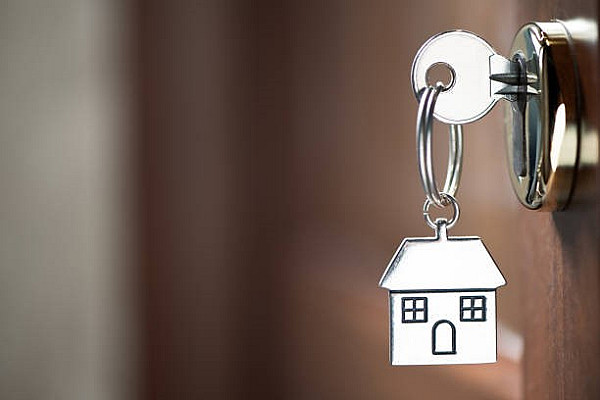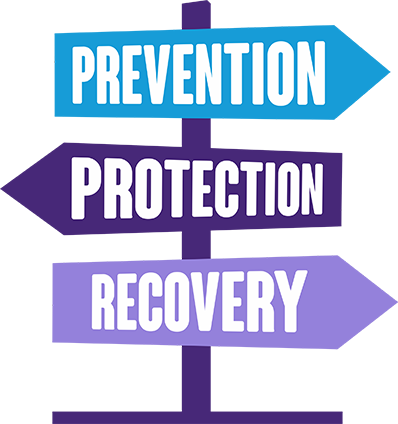Access Refuge Accommodation

Domestic abuse refuges provide a safe and secure environment for individuals and families fleeing abusive situations.
Refuge accommodation offers a safe breathing space where you can access support to make future decisions free from pressure and fear. It is a place where you can rediscover your self-esteem and independence and begin to heal and recover from the trauma of abuse.
The location of the refuge is not disclosed to the public, and strict security measures are in place to protect the safety and privacy of residents.
There is a range of refuge accommodations throughout Lincolnshire from multi-occupancy and self-contained accommodations to specialist units and dispersed safe houses in the community. In self-contained or dispersed accommodation you generally have sole use of the facilities. In the majority of multi-occupancy refuges you will have a room of your own and there will be shared spaces such as a shared kitchen or lounge area.
If you are currently living in Lincolnshire and require refuge accommodation, you may wish to consider travelling further away in order to feel safe. We can assist with this as we have access to refuge vacancies across the UK.
Eligibility criteria for referral into Refuge:
- Age 16 or over when accessing the service as an adult
- Recourse to public funds
- Fleeing or at risk of domestic abuse
- Willingness to engage with the service
- Exhaustion of other options such as target hardening or sanctuary schemes, with refuge as a last resort
What is it like to stay in a refuge?
Staying in a refuge can be a challenging and emotional experience at times, but it can also be a lifesaving and transformative one. Here are some things you might expect if you stay in a domestic abuse refuge:
Safety and security - One of the most important benefits of staying in a refuge is the safety and security it provides. Refuges are secure, confidential, and staffed by trained professionals who are committed to keeping you and your family safe.
Emotional support - Domestic abuse can be a traumatic experience, and staying in a refuge can give you the emotional support you need to heal and recover. Refuge staff can provide emotional support, advocacy, and other services to help you address the emotional impact of abuse.
Practical support - Domestic abuse can leave you feeling isolated and overwhelmed, but staying in a refuge can provide you with the practical support you need to rebuild your life. Refuges can offer help with obtaining benefits and finding housing, and other essential services to help you regain your independence.
Community - Staying in a refuge can also provide you with a sense of community and belonging. If you are in a multi-occupancy refuge, you will be living with other survivors of domestic abuse who understand what you're going through and can offer support and solidarity.
Challenges - Staying in a refuge can also be challenging. You may feel homesick or isolated, and adjusting to a new environment can be difficult. However, refuge staff are there to help you overcome these challenges and support you every step of the way.
How long can I stay in the refuge?
Refuge is usually for around 6 months while you are rehoused, but it can be slightly more or less. Staff will help support you in moving into a safe, settled home when you leave refuge. The level of this support will depend on your needs and the capacity of service, given how far away your new location is.
How do I pay for refuge?
There are no upfront costs involved, but there is usually rent and service charges to pay. Housing benefits usually cover the cost of rent which staff will support in applying for. If you currently claim housing costs for the property you are fleeing, you can usually arrange to get benefits for both homes for up to a year if you are unsure of your intentions.
The only cost to you is the personal service charge which helps to cover gas, electric, water, TV licence and other expenses. This charge will vary depending on the refuge and how many are in the household. This will have to be paid by you to the refuge on a weekly basis.
How do I arrange refuge accommodation?
There is a 'Single Point of Access' (SPA) which is the central gateway for Domestic Abuse Safe accommodation in Lincolnshire.
If you need refuge accommodation, here are the steps you can take:
Telephone: 01522 510041 (Option 1)
Professionals can use this form for someone they are supporting:Professional Refuge referral form
For Self referrals use this form: Self Refuge referral form
Email referral forms to lincsrefugespa@edanlincs.org.uk
Staff will be able to provide you with information about available refuge accommodations and help and advise you regarding the application process.
Call the National 24-hour Domestic Abuse Helpline - You can call the National Domestic Abuse Helpline at 0808 2000 247 for support and advice on how to access refuge accommodation. They can help you find refuge and provide guidance on what to expect.
Contact your local authority - You can also contact your local authority for information about available refuge accommodations. Your local authority may have a duty to provide you with temporary accommodation if you are homeless or at risk of homelessness due to domestic abuse.
Contact the police - If you are in immediate danger, you should call the police. The police can provide you with emergency assistance and support and can help you access emergency accommodation if necessary.
It's important to remember that seeking help can be a difficult and emotional experience, but there are people and organisations that are ready to support you. A professional working with you can make a refuge referral on your behalf. However, most refuges will want to speak with you directly in order to seek your consent and discuss your referral.
How will I get to the refuge?
Refuge staff will explore travel options with you and provide guidance and support in arranging travel.
Safety planning
A person is most at risk when they leave an abusive relationship, so safety planning is key to ensuring your and your children’s safety.
Click here for important safety advice to follow if you are considering leaving an abusive relationship.
What should I take with me to the refuge?
If possible and safe to do so, you should try to take:
- Identification - birth certificates, passport, driving licence
- Any school and medical records, contact telephone numbers of the school, GP or health visitor.
- Money, bank cards, cheque book and credit cards
- Keys – house, car, office
- Prescribed medication and vitamin supplements
- Benefit letters
- Visas and work permits
- Mortgage details or lease and rental agreements
- Current unpaid bills
- Insurance documents
- Address book
- Personal items – photographs, small items of sentimental value, the children’s favourite items or small toys. Clothes and toiletries.
If it’s not safe for you to gather these items you should not do so. The most important thing is getting to a place of safety. The refuge staff will help you work the rest out when you get there!
What about my pets?
Some refuges accept pets. We can also access local pet fostering schemes to arrange care for your pets.
Is refuge right for me?
It is very important to consider your own support requirements when accessing refuge to ensure the service is able to meet your needs and those of your children.
Things to consider:
The location of the refuge
- If you are heavily reliant on a support network (i.e. family and friends) then moving hundreds of miles away could be detrimental rather than beneficial. It’s weighing up the risks vs the benefits.
- If you or your children need regular access to specialist medical care, you might want to consider a refuge that is within travelling distance of this care.
- If you need to maintain court-ordered contact then moving to a refuge hundreds of miles away without good transport links could be an issue.
Type of Refuge
- Would you benefit from a refuge that is staffed 24 hours a day?
- Do you need refuge accommodation with specific adaptations due to a physical condition or disability?
- Do you prefer to be around people or do you prefer your own space and solitude?
Our advice is to be honest with the call taker when making a refuge referral. Make sure to communicate any specific needs that you may have and don’t be afraid to ask questions if you have any.
Other accommodation options for those experiencing domestic abuse
If you decide that Refuge is not appropriate for you, there are other accommodation options for those experiencing domestic abuse.
You may be able to access emergency accommodation through your local council, such as a hostel, hotel or bed and breakfast.
If someone is fleeing domestic abuse and there is a risk of violence they are entitled to apply to any local authority of their choosing for housing. It is not necessary to have a local connection in cases of domestic abuse.
You may want to ask friends or family if you can stay with them temporarily if it is safe to do so. However, bear in mind that you might be more accessible to your abuser in these circumstances.
Private renting could be an option. For more help and information on general housing options, you could contact your local council housing department.
If you want to stay in your own home, you may want to consider an injunction to protect you and your children and to keep your abuser away Click here for advice on legal options provided by ‘Reducing the risk’

